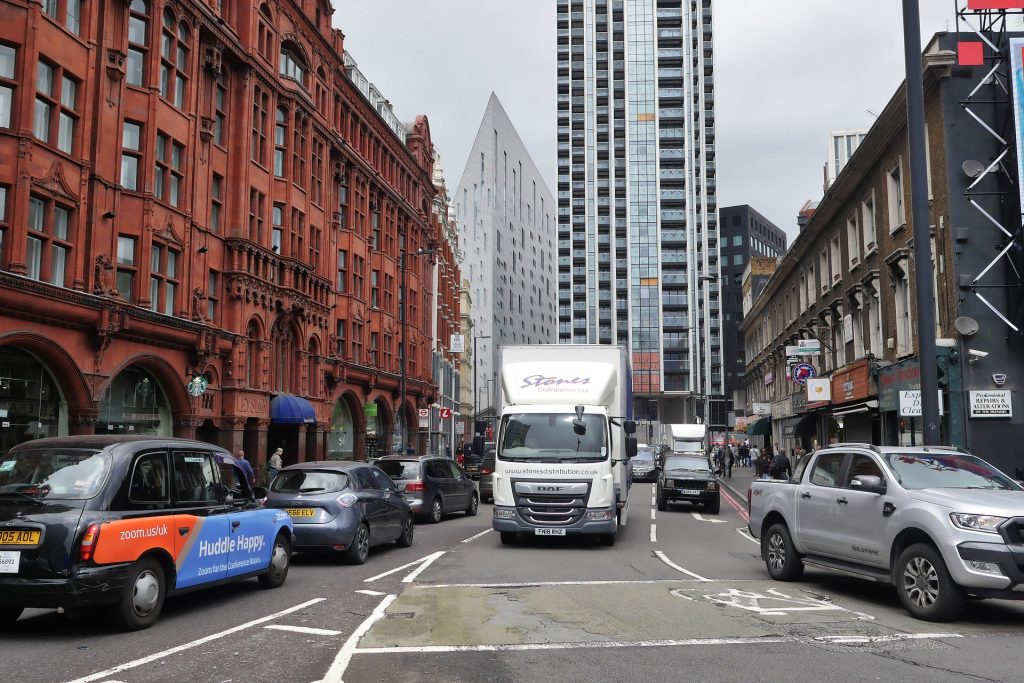The impacts of e-commerce on the trucking industry
The introduction and popularity of e-commerce in retail has been a great opportunity for the trucking industry to maximise their work, not only in the UK but all over the globe. With online purchases being made from the biggest retailers in the world, truck drivers are given work in order to get those deliveries to their destination – wherever that may be. The industry has seen huge growth over the past ten years, however, Black Friday, Cyber Monday, Boxing Day and the January Sales are some of the busiest times of the year for most trucking companies. In this month’s blog, we will explore how e-commerce has changed the British trucking industry and what we can expect in future sale seasons.

The Amazon Effect
It was 25 years ago when Amazon first opened for business as an online book store. However, the company has expanded massively and now trade many goods worldwide; including technology, clothing, household items and food; they even offer their own streaming service with Amazon Prime Video. Their growth has been fueled by their customer-driven focus. They are forever trying to outdo their competitors by offering services and benefits to their customers that we wouldn’t think possible in the past; from free shipping, next day delivery and now even one hour delivery in some parts of the UK. Although brilliant for the online consumer, it has put immense pressure on the trucking industry who have had to reshape how they run their operations. In the USA, for example, the US Department of Transportation estimates that by 2040, annual freight volume will increase by 45% – many of these goods will be transported by trucks and we are likely to see trends like this pop up all over the world for the first time ever.
Seasonal sales and the pressure on the trucking industry
Traditionally in the UK, our biggest sale seasons were on Boxing Day and throughout the month of January, where retailers discount the rest of their unsold goods that did not make it onto peoples’ Christmas wish lists. However, with the introduction of Black Friday, the British high street has had to rethink their approach and meet the high expectations of consumers.
Black Friday is a phrase the UK knew little of just ten years ago. Now, the American trend has reshaped how British retailers trade during a crucial time of the year – Christmas! Historically, Black Friday was an opportunity for shoppers to purchase goods at a discounted rate on the last Friday of November. Black Friday deals have expanded to a full weekend of sales and now, with the popularity of online shopping, Cyber Monday has been created to involve those retailers who solely trade online.
With consumers spending more time online, rather than in-store, more orders are made online than ever before. This impacts not only the number of drivers needed but many businesses connected within the trucking industry, such as truck stops and tyre companies. On top of this, some of the biggest organisations are offering additional services during the busiest time of the year, such as delivering and building pieces of furniture.
However, in order to meet high demands and quick delivery times set by the retailers, it has meant shorter hauls and more localised drop-offs have been needed. Traditionally, giant warehouses and sorting houses were located in rural areas of the country, storing thousands of products that would supply a whole region for weeks. Now, that dominant distribution model has been forced to adjust to a more localised approach in order to keep up with the demand. More retailers are having to build smaller distribution centres all over the country to allow their fleets to make multiple deliveries; from supermarkets, stores, offices and to peoples’ homes. However, this has appealed to drivers as they get to spend more time with their families at home. This will hopefully be an indication that it’ll be much easier to recruit HGV drivers in the future should this trend continue, which we will discuss.

Embracing digital technologies
As mentioned before, the trucking industry will have to remodel their operations in order to keep up with the growing number of online purchases, especially during sale-focused times of the year. Retailers aim to run a fully omnichannel format for their customers. This means that a customer can shop with them via various channels; including in-store, on their website, through a mobile app and on social media. Part of this process is allowing customers to choose certain time slots when purchasing and essentially give them an estimated delivery time down to the final hour using tracking devices and digital technologies.
Although this is great customer service, it puts workers in the supply chain under pressure to ensure deadlines are met. Weather, road traffic incidents and truck breakdowns can be incredibly difficult to prepare for and can add extra pressure to the drivers during busy periods.
We encourage drivers to use their weather apps before they set off on a journey to help them better prepare for what they may face, especially during winter, and to take extra care as the roads become busier.
Another way that truck companies are embracing new technologies is to help better plan their fleet’s route is by tracking their truck and driver performance to help maximise efficiency and meet tight deadlines – especially during sale season.

Future insights
There have been huge benefits for those who are interested in, or who currently uphold, careers within the truck industry. As the need for prompt delivery has increased, so have the expectations of retailers and consumers. Whether it’s during sale seasons, where more orders are being processed, or even the simple task of delivering perishable groceries, it has meant that e-commerce has significantly increased the number of short-haul trips; especially in UK cities. This has appealed to truck drivers who are able to take on local work and have a better work/life balance – a huge problem that organisations have faced when trying to recruit truck drivers. However, looking at statistics, the trucking industry is still facing recruitment problems; even with more flexible structures. In 2018, it was reported that the UK haulage industry would need to recruit over 75,000 skilled drivers in order to meet e-commerce demands.
We are expecting to see big technology and retail firms, such as Amazon, build their own transportation systems in order to keep up with consumers’ demand; especially during busy seasons such as Black Friday and post-Christmas offers. Finally, as consumers rely more heavily on e-commerce to fulfil their needs, there is no sign of demand slowing down. Therefore the trucking industry will need to continue to adapt and start thinking ahead when it comes to what processes they will need to adopt.
If you are an experienced HGV driver and have any other useful tips for other drivers during busy periods of the year, please share with us on Twitter by tagging us at @stoneridge_uk. If you would like more articles on topics from new legislation to the best truck stops in the UK, browse our driver’s blog.
